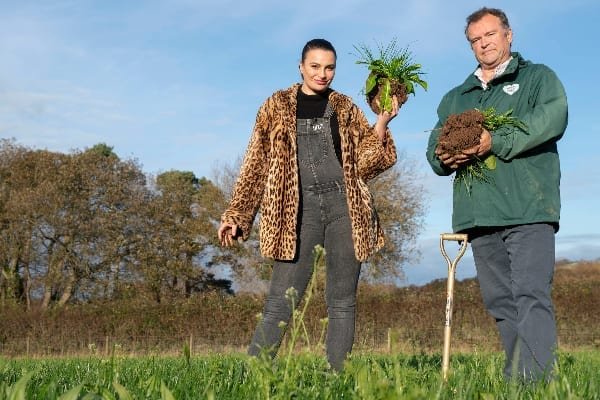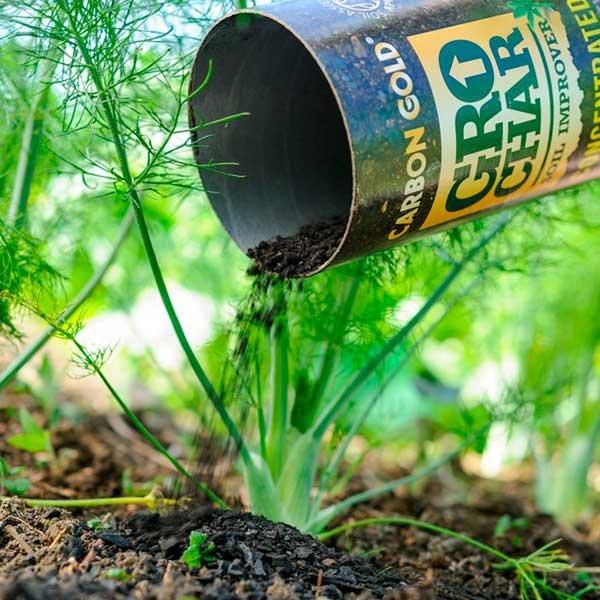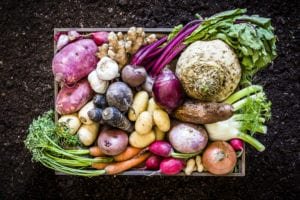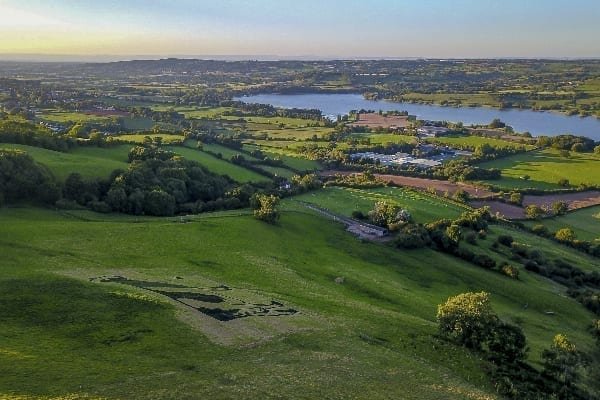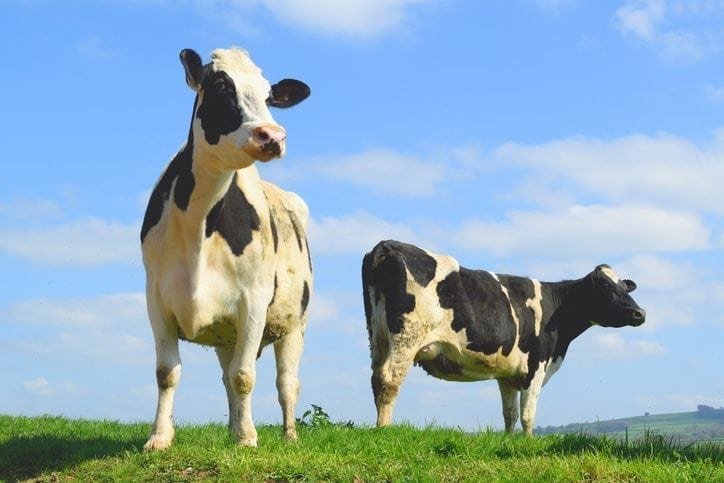To mark World Soil Day (05 December 2020), chef and award-winning food writer Gizzi Erskine is partnering with the UK’s leading organic brand, Yeo Valley Organic, to get the UK talking about the importance of soil and regenerative farming as a solution to the climate crisis.
Together Gizzi and Tim Mead, of Yeo Valley Organic, have prepared a video to help people better understand our role in it all.
The educational new video supports the United Nations’ mission to get people thinking about soil this World Soil Day.
Both Gizzi and Tim strongly believe that healthy organic soil and regenerative farming are the key to curbing climate change.
‘As a chef, I’m obsessive about food and the best ingredients, but over the last few years I’ve been on a journey focusing on where our food comes from and how it impacts the environment.
‘I’ve learnt that it all comes back to the soil, whether it’s animal, dairy, veg or grains – the soil is key to the food we eat and almost more importantly it’s crucial for the environment too. I’ve turned into a total soil geek!
‘In my opinion buying produce from land that’s been organically or regeneratively farmed and from brands that look after their soil really can make a difference.
‘When Yeo Valley asked me to visit the farm for World Soil Day, I was thrilled as it couldn’t be more relevant to the focus of my new book, Restore. Campaigning for good soil is my mission and working with such an accessible brand which understands how important this is gives me hope.’
GIZZI ERSKINE
Chef and award-winning food writer
Regenerative farming
In line with the UN’s focus on soil health, everything at Yeo Valley Organic starts with healthy soil: it grows the very best food and draws down carbon from the atmosphere back into the soil to help slow down climate change.
The farm follows the five principles of regenerative farming, using clover and grass mixes to keep the soil covered and maximise crop diversity and maintaining living roots year-round. It all helps to restore nutrients into the soil.
Livestock – cows (of course!) but also sheep – are a key part of the farm and are used to naturally fertilise the soil, which helps to minimise soil disturbance year-round.
All Yeo Valley Organic’s delicious dairy produce is not only organic but actually part of a regenerative farming cycle that helps to keep nutrients in the soil and protect one of our most precious resources – the soil. Not every natural yoghurt can claim that!
‘It’s a huge concern for us that people in the UK, and globally, eat diets that are completely at odds with seasonality, local growing conditions and in some cases, ethics. It seems eminently sensible to look at what your country can produce and you try and balance your diet roughly around that. In the UK that would mean eating more seasonal vegetables, oats and grains, and grass-fed dairy and meat.
‘You’ve got to look at the geography of where you are and what you can produce. In rainy Western Europe – Ireland, England, Northern France and Germany – the one thing that we can produce in abundance is grass but it’s how we use that fact that can help make a difference to the climate crisis.’
TIM MEAD
Yeo Valley Organic
Sustainable soils
The aim of UN World Soil Day 2020 (#WorldSoilDay) and its campaign ‘Keep soil alive, protect soil biodiversity’ is to raise awareness of the importance of maintaining healthy ecosystems and human wellbeing.
By encouraging people around the world to proactively improve soil health, the initiative hopes to fight soil biodiversity loss and increase awareness of soil.
As well as supporting the UN, Yeo Valley Organic continues to work with the Sustainable Soils Alliance and the Soil Association to raise awareness of the importance of looking after the soil.
 Play Video about This Rock Might Just Save The World
Play Video about This Rock Might Just Save The World Play Video about Play 2 hours of rock
Play Video about Play 2 hours of rock Play Video about Play 2 hours of brook
Play Video about Play 2 hours of brook Play Video about Play 2 hours of sheep
Play Video about Play 2 hours of sheep

















